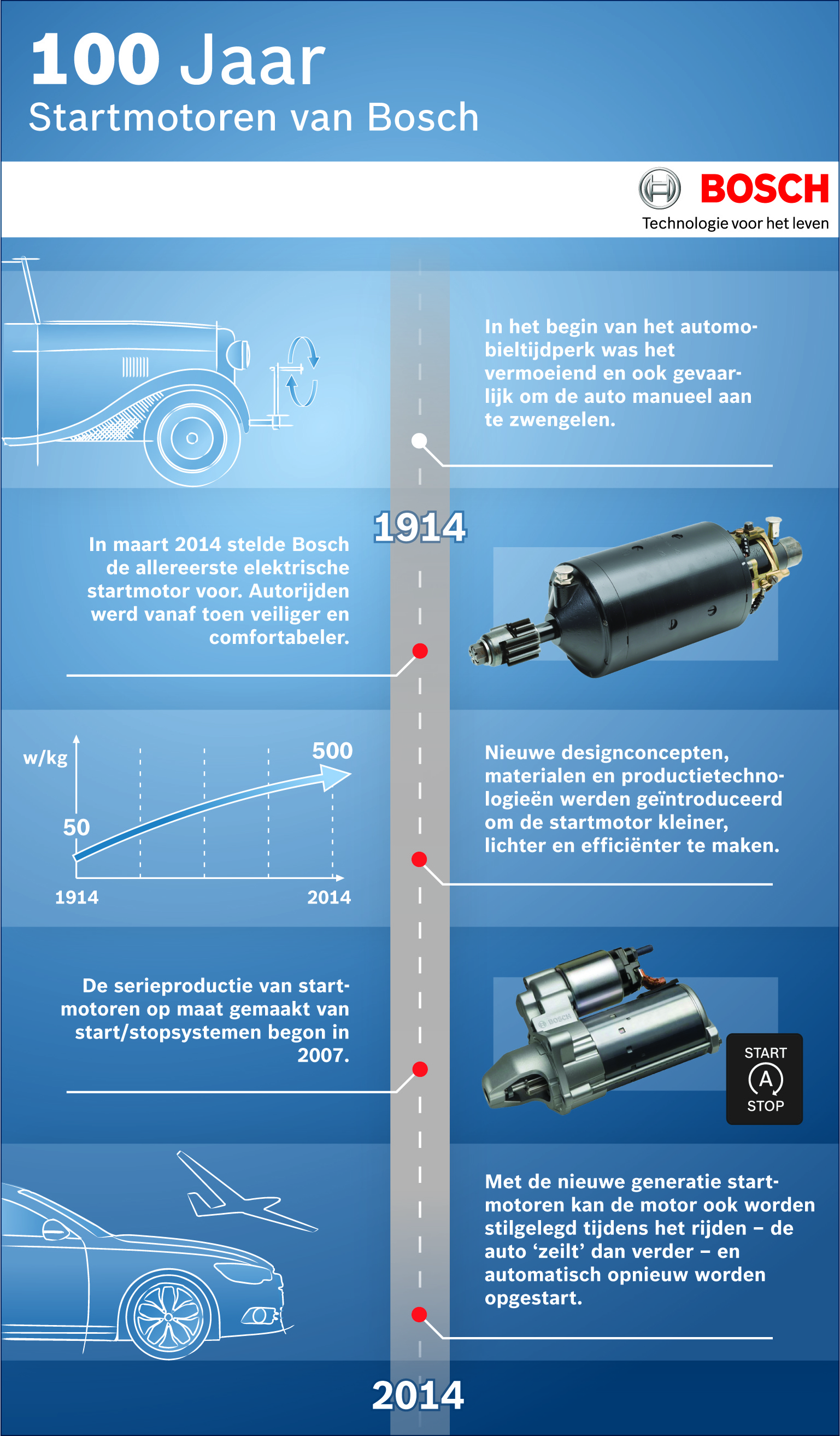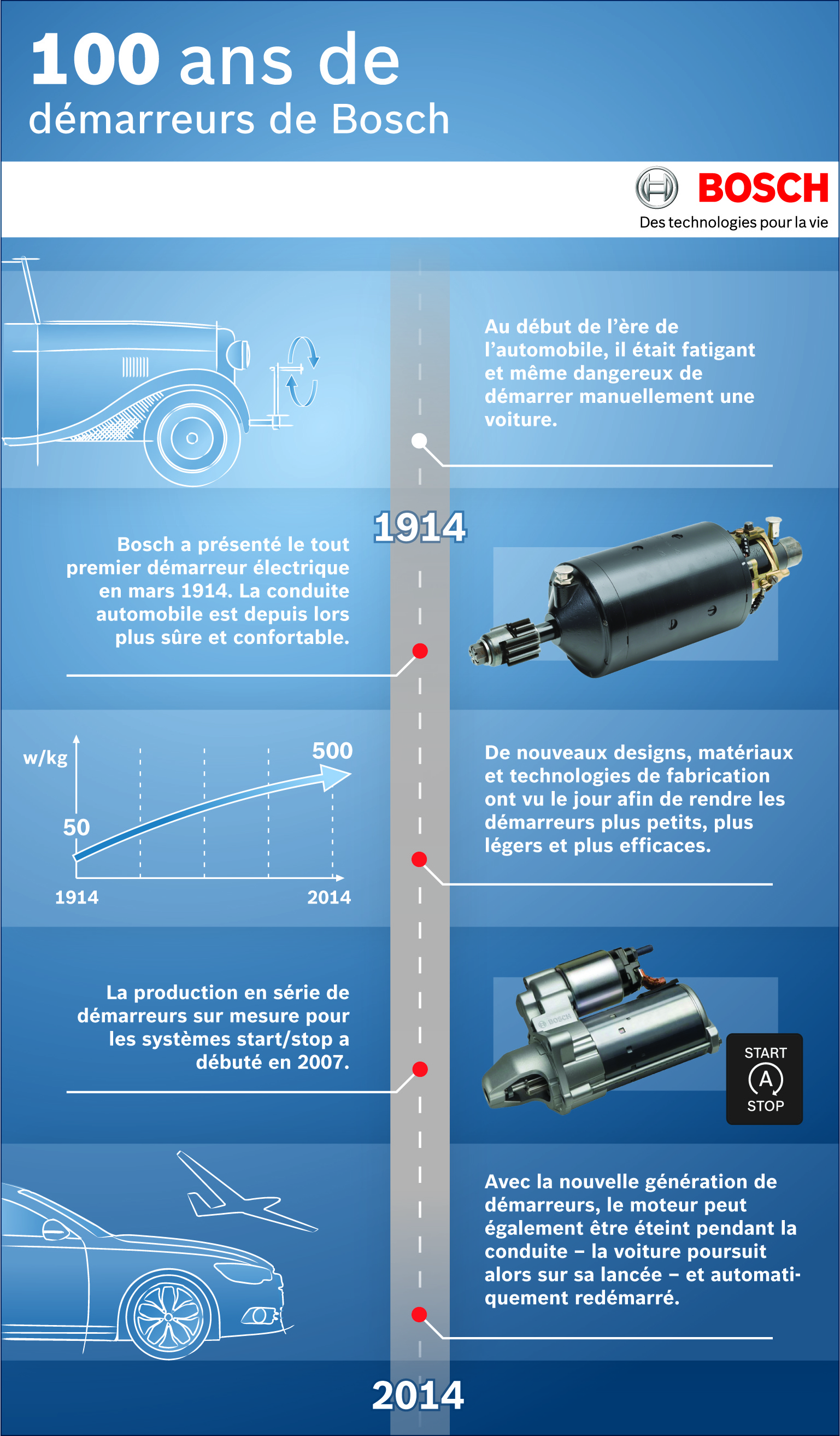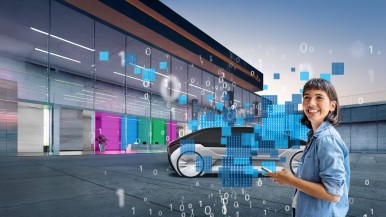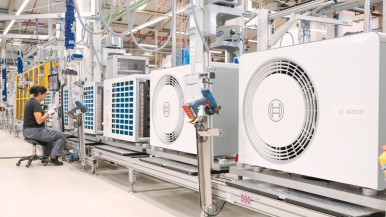- Milestone in automotive industry
- Important step for the electrification of cars
- For a safe, comfortable start-up of the engine
- 1914: start of a new industry
- Today more than 12 million starters are produced.
One century ago, Bosch introduced its first electric engine for cars. During those days, this new engine caused great relief amongst car drivers. The last 100 years, things changed a lot: current starters have a weight between 1.9 and 17 kilo and have power between 0.8 and 9.2 kilowatt.
The start of a new industry
‘The starter is a typical Bosch-product from the early days of motorization. The product was designed to eliminate the shortcomings in functioning and safety,’ says Ulrich Kirschner, chairman of Bosch Starter Motors and Generators.
An innovation with a future
Initially, the greatest demand for electric start engines came from North-America. That was reason enough for Robert Bosch to start a production line in 1914 for starter motors. In 1927, already 11.000 pieces were sold. The demand for starter motors continued to increase, and in 1933 almost 550.000 starter motors were sold.
Ready to start at any time
Today, Bosch has a broad spectrum of robust, reliable starter engines for electric systems of 12 and 24 Volt of as well gasoline and diesel motors. Besides the ease of installation are the starter motors light compact and they decrease the fuel consumption and emissions. Bosch produces annually more than 12 million starter motors which are installed at least in one out of five vehicles worldwide.





